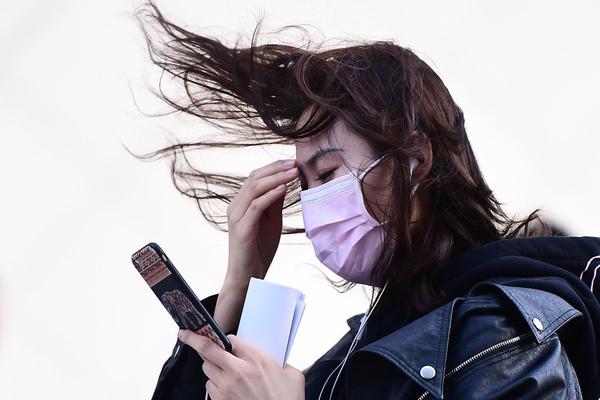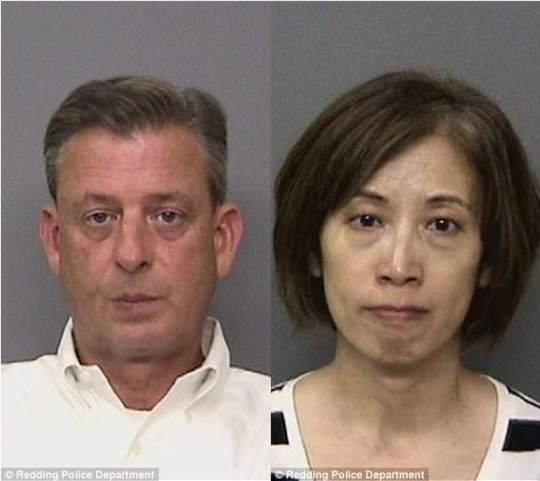The Watch Chrysalis OnlineTake It Down Act, a controversial bipartisan bill recently hailed by First Lady Melania Trump as a tool to build a safer internet, is officially law, as President Donald Trump took to the White House Rose Garden today to put ink to legislative paper. It's the first high-profile tech legislation to pass under the new administration.
"With the rise of AI image generation, countless women have been harassed with deepfakes and other explicit images distributed against their will. This is wrong, so horribly wrong, and it’s a very abusive situation,” said Trump at the time of signing. "This will be the first ever federal law to combat the distribution of explicit, imaginary, posted without subject's consent... We've all heard about deepfakes. I have them all the time, but nobody does anything. I ask Pam [Bondi], 'Can you help me Pam?' She says, 'No I'm too busy doing other things. Don't worry you'll survive.' But a lot of people don't survive, that's true and so horrible... Today, we're making it totally illegal."
SEE ALSO: Caring for ourselves amid the Diddy trial and collective trauma exposureThe bill, which criminalizes publishing or threatening to publish nonconsensual intimate imagery, including AI-generated deepfakes and pornography, was passed by the House of Representatives in April, following a successful run through the Senate. It requires social media platforms to remove offending content within 48 hours and prevent users from posting duplicates, and allows the Federal Trade Commission to sue non-compliant platforms. The law also adds protections for victims and clarifies prosecution guidelines for police, according to CNN.
Victims of nonconsensual intimate imagery previously had little legal recourse against perpetrators, and lawmakers have been slow to agree on how to address revenge porn broadly, even as it is increasingly exacerbated by advancing tech like AI — previous attempts to create criminal or civil pathways for victims, like the DEFIANCE Act, have failed.
Digital rights organizations have been extremely critical of the new legislation, warning lawmakers that the act's broad takedown provisions and tight timeline may lead online service providers to more actively monitor users' speech and fuel censorship of legal content.
Topics Artificial Intelligence Social Good Donald Trump Politics
(Editor: {typename type="name"/})
 A worthless juicer and a Gipper-branded server
A worthless juicer and a Gipper-branded server
 How to change your Apple ID password
How to change your Apple ID password
 Airbnb is providing temporary housing to 20,000 Afghan refugees
Airbnb is providing temporary housing to 20,000 Afghan refugees
 'Shang
'Shang
 Samsung Unpacked stream is set for May 12, 2025
Samsung Unpacked stream is set for May 12, 2025
Best speaker deal: Save $30 on the JBL Clip 5
 SAVE $30: As of May 13, the JBL Clip 5 is on sale for $49.95 at Amazon. That's a 38% saving on the l
...[Details]
SAVE $30: As of May 13, the JBL Clip 5 is on sale for $49.95 at Amazon. That's a 38% saving on the l
...[Details]
Watch hackers embarrass guards at infamous Iranian prison
 It's one for the history books. A group of hackers obtained uncensored footage from inside the notor
...[Details]
It's one for the history books. A group of hackers obtained uncensored footage from inside the notor
...[Details]
Trump 'cheats like hell' at golf, according to an old friend of his
 Given that President Trump isn't such a straight shooter in the facts department, it might not surpr
...[Details]
Given that President Trump isn't such a straight shooter in the facts department, it might not surpr
...[Details]
Rose McGowan opens up about Harvey Weinstein and Twitter
 Actress, activist, and author Rose McGowan stopped by Good Morning America on Tuesday to discuss eve
...[Details]
Actress, activist, and author Rose McGowan stopped by Good Morning America on Tuesday to discuss eve
...[Details]
The cicadas aren't invading the U.S.
 UPDATE: April 27, 2021: In the spring of 2021,Brood X of the cicadas will gloriously emerge from the
...[Details]
UPDATE: April 27, 2021: In the spring of 2021,Brood X of the cicadas will gloriously emerge from the
...[Details]
Black Panther is great, but 'Marvel's Avengers' is still failing
 T'Challa has officially arrived in Marvel's Avengers. But is it already too late?On paper, developer
...[Details]
T'Challa has officially arrived in Marvel's Avengers. But is it already too late?On paper, developer
...[Details]
Strava’s fitness heatmap has a major security problem for the military
 Strava, a fitness tracking platform that logs activities on Fitbits, Jawbones and Garmin wearable de
...[Details]
Strava, a fitness tracking platform that logs activities on Fitbits, Jawbones and Garmin wearable de
...[Details]
'Candyman': What you need to know about the original
 Welcome to the Candy-verse, the wide world of all things Candyman— in theaters Friday. But Uni
...[Details]
Welcome to the Candy-verse, the wide world of all things Candyman— in theaters Friday. But Uni
...[Details]
Today's Hurdle hints and answers for May 9, 2025
 If you like playing daily word games like Wordle, then Hurdle is a great game to add to your routine
...[Details]
If you like playing daily word games like Wordle, then Hurdle is a great game to add to your routine
...[Details]
Steve Mnuchin threw a snowball at a New York Times reporter
 There are a lot of metaphors available for the Trump Administration so far -- like, say, a tire fire
...[Details]
There are a lot of metaphors available for the Trump Administration so far -- like, say, a tire fire
...[Details]
Amazon Pet Day: All the best deals

Man wakes up to dog getting drink of water wrapped up in a blanket

接受PR>=1、BR>=1,流量相当,内容相关类链接。